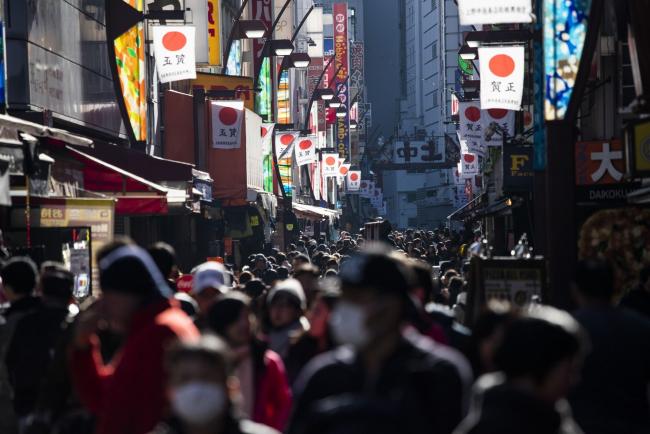(Bloomberg) -- Japan’s key gauge of inflation ticked up in November, gaining for a second month following October’s sale tax hike.
Consumer prices excluding fresh food rose 0.5% from a year earlier, picking up speed from 0.4% in October, data from the ministry of internal affairs showed Friday. The number matched the median of economists’ forecasts.
Key Insights
- October’s 2 percentage-point increase in the sales tax has pushed up prices of goods and services but also damped consumer demand, a key driver of inflation.
- Lower energy costs, a global phenomenon this year, are also limiting Japanese price gains, which are running far below the Bank of Japan’s 2% target.
- Inflation has held up somewhat better when energy is stripped out, a fact supporting the BOJ’s case that price momentum hasn’t been lost. The bank is reluctant to ease further because its policy ammunition is already depleted.
- The BOJ on Thursday held pat and most economists expect no action for the foreseeable future. A government stimulus package unveiled this month and signs of progress in U.S.-China trade talks have opened some breathing room for the bank.
“The broad picture in Japan is low and slowing inflation. Even so, reflation still appears to be on track given the positive output gap – which is now part of the BOJ’s forward guidance.”
--The Asia Economist Team
Click here to read more.
Get more
- Excluding fresh food and energy, prices rose 0.8% in November. Economists forecast 0.7%.
- Overall inflation rose 0.5%, matching the median analysts’ forecast.
